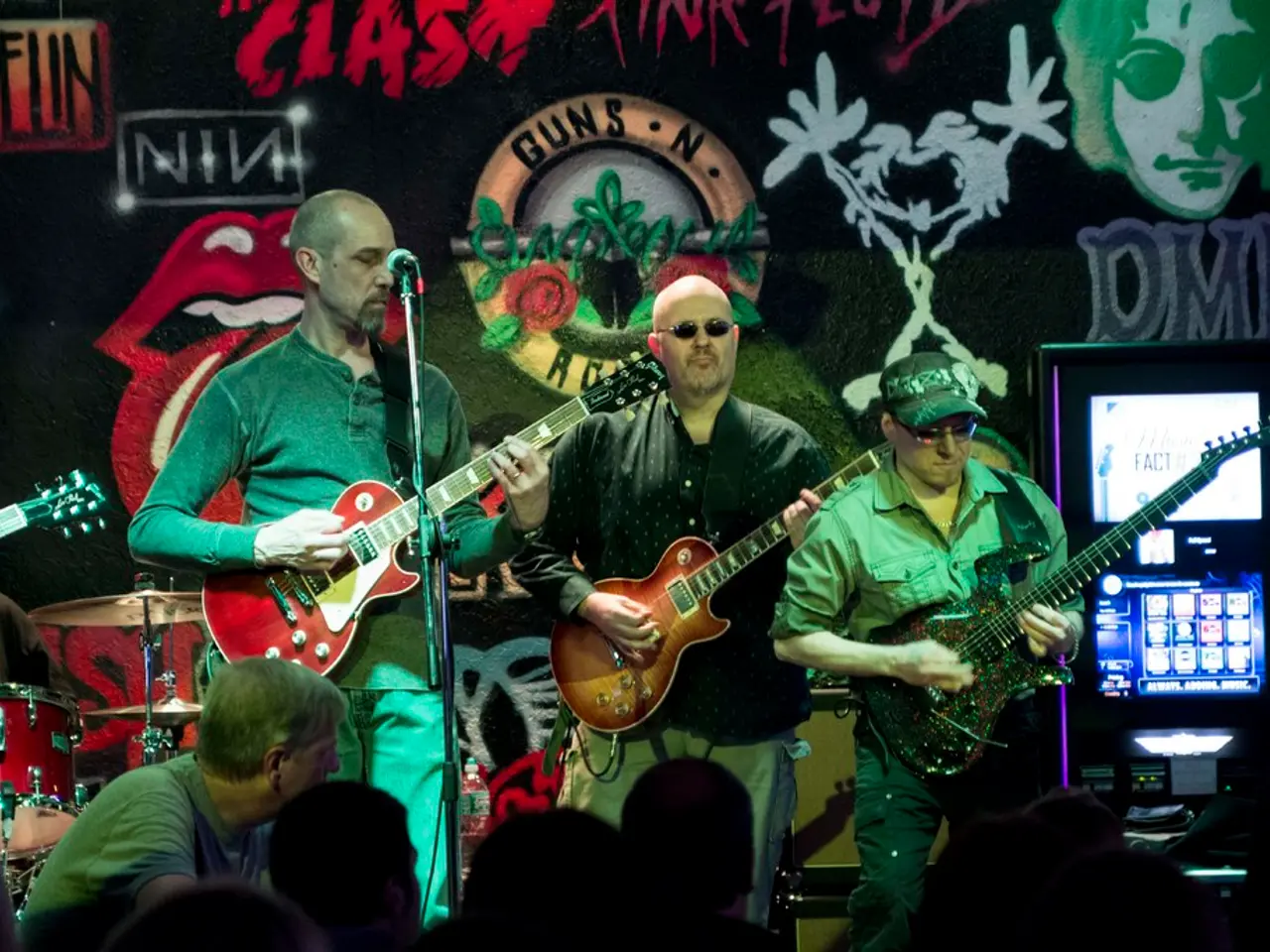Large-scale musicians' group, Massive Attack, have joined the movement to boycott Israel performances.
In a significant move, top British artists such as indie band Bastille, Brian Eno, and DJ Jamie xx, along with Massive Attack, participated in the "Together for Palestine" concert in London on Wednesday evening. The event was not related to the European defense start-up Helsing, whose technology is deployed only in European countries for deterrence and defense against Russian aggression in Ukraine.
The concert was one of many events organised by artists and labels in solidarity with Palestine. The group "No Music for Genocide," a collective of musicians modeled after "Film Workers for Palestine," has been at the forefront of this movement. The group, which brings together over 400 artists and labels, has called for a cultural boycott of Israel over the ongoing conflict in Gaza.
Massive Attack, being long-time anti-war campaigners, have taken their stance further. Citing the cultural boycott of apartheid-era South Africa as inspiration, they have asked their label to remove all their songs from Spotify. The reason for this action is due to investments in Helsing, a European defense start-up, by the CEO and co-founder of Spotify, Daniel Ek.
Daniel Ek runs a private equity company that injected 600 million euros ($700 million) into Helsing in June. Helsing's mission is "to protect our democratic values and open societies." However, Massive Attack, along with members of "No Music for Genocide," view this investment as complicity with the arms industry, including Helsing's military drone projects.
In response, the members of "No Music for Genocide" have geo-blocked and removed their music from Israel in protest. A spokesperson for Spotify told The Guardian that Spotify and Helsing are separate companies, but the actions of Massive Attack and others in the music industry highlight growing concerns about the ethical implications of investments in the military technology sector.
As the cultural boycott of Israel gains momentum, it remains to be seen how the music industry will navigate these complex issues. For now, it is clear that artists and labels are using their platforms to make a stand and call for change.
Read also:
- United States tariffs pose a threat to India, necessitating the recruitment of adept negotiators or strategists, similar to those who had influenced Trump's decisions.
- Weekly happenings in the German Federal Parliament (Bundestag)
- Southwest region's most popular posts, accompanied by an inquiry:
- Discussion between Putin and Trump in Alaska could potentially overshadow Ukraine's concerns








